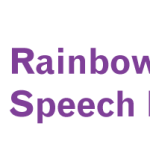WHAT IS DLD?
 Developmental language disorder*, or DLD, is a difficulty understanding and using spoken language. DLD is a lifelong condition that emerges in childhood.
Developmental language disorder*, or DLD, is a difficulty understanding and using spoken language. DLD is a lifelong condition that emerges in childhood.
DLD is more common than you might think! Studies show that 1 in 14 children may have DLD – this equates to almost 2 children in every classroom.
What does DLD actually look like?
Each individual with DLD will have their own unique strengths and challenges across different areas of language (e.g. sounds, words, sentences, conversation, social language). People with DLD may:
- Have trouble learning and remembering words.
- Use non-specific words.
- Mix up or leave out words in their sentences.
- Tell stories that are hard to follow.
- Have difficulty following directions.
- Find it hard to communicate in different situations and keep up in conversations.
- Have trouble learning to read and write.
DLD is often referred to as a “hidden disability” because it can go un-noticed, however such challenges with language can have a significant impact on a child’s social and academic participation. But, by identifying DLD early, therapy and supports can be established to help children with DLD thrive!
Speech Pathologists can provide assessment, diagnosis and therapy for people with DLD, along with recommendations on how to best support individuals in the classroom, at home and in the community. When considering a DLD diagnosis a Speech Pathologist looks for:
- Language difficulties that are persistent.
- Language difficulties that have a significant impact upon a child’s educational and social participation.
- Language difficulties that are not associated with another diagnosis such as ASD or Intellectual Disability.
Where to find out more about DLD?
- Your Speech Pathologist!
- Raising Awareness of DLD – International DLD Day is in October every year.
- The DLD Project
*DLD may be referred to by many different names e.g. Specific Language Impairment (SLI), language delay, expressive and receptive language disorder. However, the consensus now is to use the term “DLD”.
Written by Samantha Bolton Speech Pathologist
References
Archibald, L. M. (2017). SLP-educator classroom collaboration: A review to inform reason-based practice. Autism & Developmental Language Impairments, 2, 2396941516680369.
Bishop, D. V. M., Snowling, M. J., Thompson, P. A., Greenhalgh, T., & The CATALISE Consortium. (2016). CATALISE: a multinational and multidisciplinary Delphi consensus study. Identifying language impairments in children. PLOS One, 11(7), e0158753. doi:10.1371/journal.pone.0158753
Bishop, D. V. M., Snowling, M. J., Thompson, P. A., Greenhalgh, T., & The CATALISE Consortium. (2017). Phase 2 of CATALISE: a multinational and multidisciplinary Delphi consensus study of problems with language development: Terminology. Journal of Child Psychology & Psychiatry. doi:10.1371/journal.pone.0158753
Ebbels, S. H., McCartney, E., Slonims, V., Dockrell, J. E., & Norbury, C. F. (2019). Evidence‐based pathways to intervention for children with language disorders. International journal of language & communication disorders, 54(1), 3-19.
Simkin, Z., & Conti-Ramsden, G. (2006). Evidence of reading difficulty in subgroups of children with specific language impairment. Child language teaching and therapy, 22(3), 315-331.


